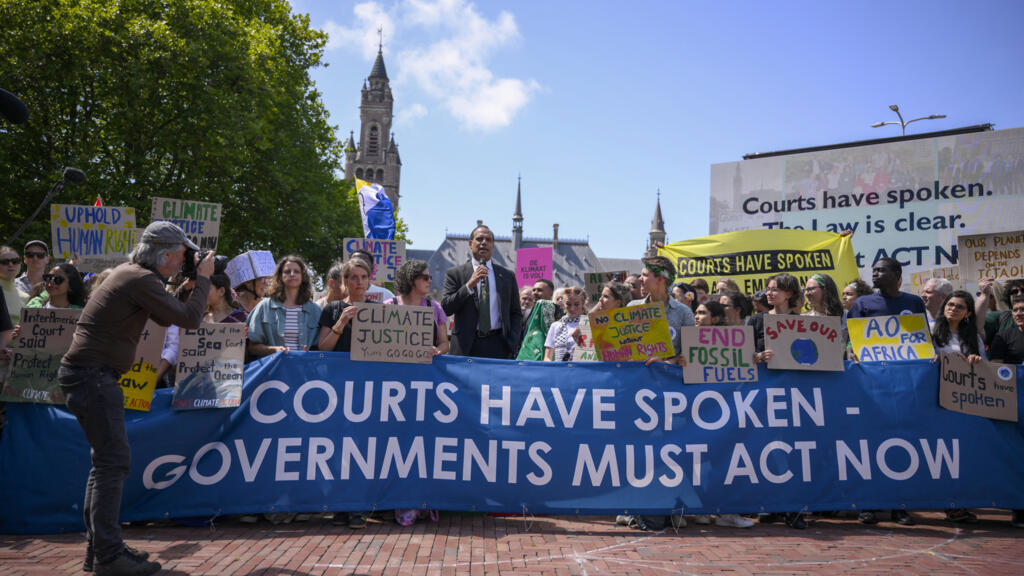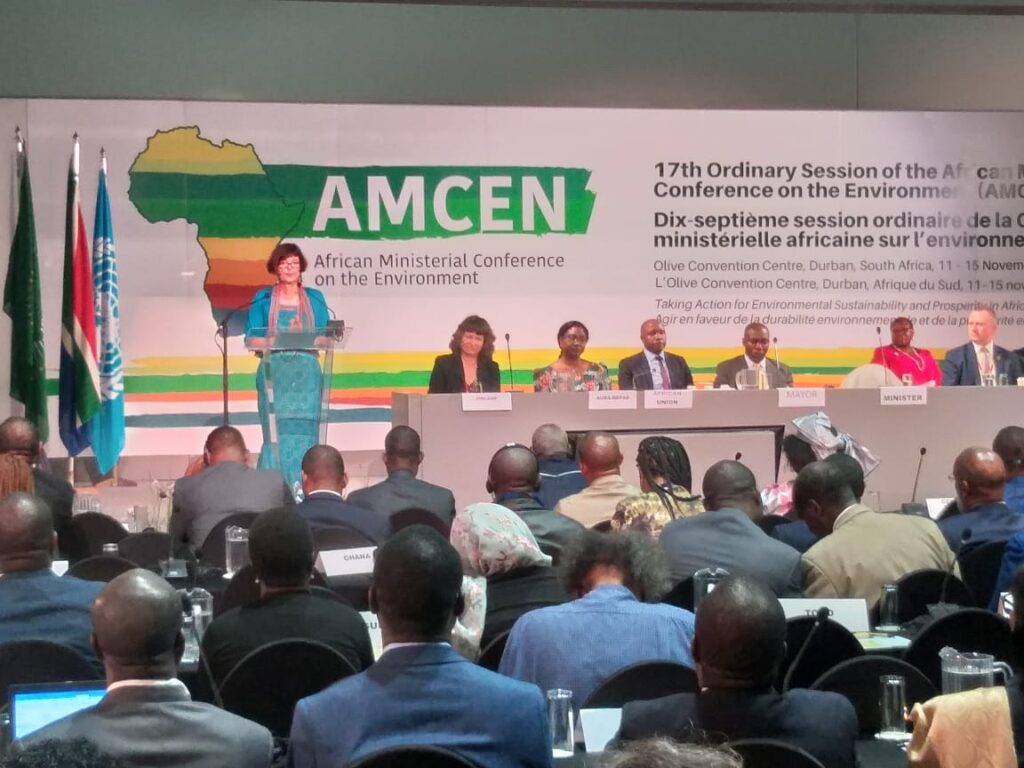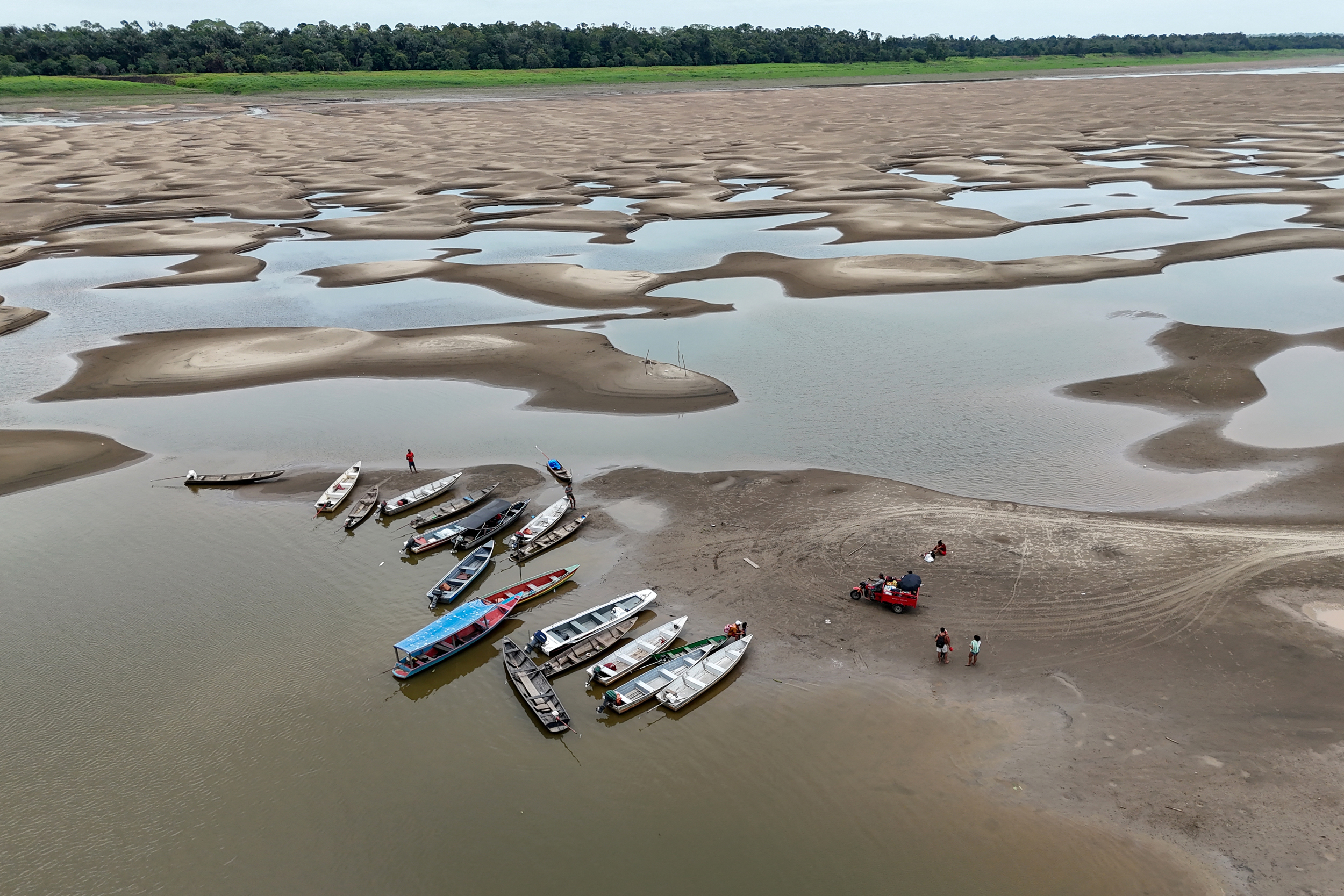Impacted nations can now sue other nations over climate change - ICJ judgement
By Victor Siokwu - in Climate Change

The International Court of Justice ruling on climate inaction could see badly affected states seek reparations from big polluters.
In a ruling that is nonbinding, but that experts say is likely to have far-reaching consequences, the International Court of Justice (ICJ) has made clear that the climate must be protected for "present and future generations."
Outlining the obligations of states to protect the human rights of citizens being impacted by rising global temperatures, ICJ President Yuji Iwasawa said a "clean, healthy and sustainable environment" is a human right.
Speaking at the UN's top court on Wednesday, he added that failing to protect the planet from the impacts of climate change may be a violation of international law.
The consequences of a country failing to fulfill its duty would be "full reparations to injured states in the form of restitution, compensation and satisfaction," he said.
In other words, the ruling paves the way for countries, groups or individuals being impacted by extreme weather and other climate impacts to sue high-emitting nations, including over past emissions.
Vishal Prasad, director of Pacific Islands Students Fighting Climate Change, welcomed the ruling as a "lifeline" for Pacific communities facing some of the worst impacts of climate change.
"The world's smallest countries have made history," he said. "The ICJ's decision brings us closer to a world where governments can no longer turn a blind eye to their legal responsibilities." Climate change poses an "urgent and existential threat"
Reading the ruling, Iwasawa said "greenhouse gas emissions are unequivocally caused by human activities and have cross-border effects" with far-reaching consequences. These, he said, "underscore the urgent and existential threat posed by climate change."
The judge further said that countries have an obligation under both international laws — including human rights legislation — and international climate treaties to protect the environment and ensure a stable climate.
As such, countries are obliged to cooperate on preventing harm caused by climate change. They must make sure their national climate targets represent the highest possible ambition, according to the court.
In its ruling, the ICJ also said countries have a duty not to turn away migrants whose lives would be endangered by climate change in their home countries.
Former UN human rights chief Mary Robinson said the ruling was "a powerful new tool to protect people from the devastating impacts of climate change."
"This is a gift from the Pacific and the world's youth to the global community, a legal turning point that can accelerate the path toward a safer, fairer future," said Robinson, who is also a member of The Elders, an independent group of global leaders working toward justice and a healthy planet.
The New York Times reports that the case began in 2020 after students from Pacific Island countries lobbied governments into calling for the legal clarification of national obligation on tackling climate change.
The state of Vanuatu asked the ICJ to rule on the obligations of states under international law to protect the climate and environment — and by extension present and future generations — from greenhouse gas emissions.
Speaking in front of the court following the decision, Vanuatu's Climate Change Minister Ralph Regenvanu called the ruling a "landmark milestone for climate action."
"It's a very important course correction in this critically important time. For the first time in history, the ICJ has spoken directly about the biggest threat facing humanity, which is climate change," he added. "It points to the critical nature of this issue and also the consensus of most people in the world that we need to really address it as a matter of urgency."
Last December, the court heard testimonies from almost 100 countries and 12 international organizations. Some called for greater legal protections from climate change. Others said existing UN treaties — primarily the 2015 Paris Agreement — provided enough legal guidelines on action toward slowing climate change. Germany and the US were among the latter.
President Donald Trump has since announced his country's withdrawal from the landmark accord that saw 195 nations agree to reduce carbon emissions and pursue efforts to limit global warming to no more than 1.5 degrees Celsius (2.7 Fahrenheit).
But experts say the Paris Agreement was never intended to define all laws around climate change.
Joie Chowdhury, senior attorney at the Center for International Environmental Law, told reporters that the scope of climate change means there is space for a lot of different laws.
"The climate treaties remain very important, they're just not the only game in town," she said.
In bringing the case to the ICJ, Vanuatu also asked for clarification on the legal consequences for countries that failed to meet their obligations on slowing their emissions.
Some experts say countries and regions that have emitted most CO2 cumulatively — including the United States, China, Russia and the European Union — carry the most responsibility for global warming.
Poorer countries have long been calling for richer nations to pay for damage caused by extreme weather linked to the emissions heating the planet. Many of these less wealthy states are experiencing the worst impacts of climate change, despite having done the least to contribute to the crisis.
The ICJ advisory warned that "adverse impacts and loss and damage will escalate with every increment of global warming."
A loss and damage fund was established at UN climate negotiations two years ago in Dubai, but has only received around $700 million in pledges. That is far lower than the hundreds of billions of dollars experts say climate change could cost in damages by 2030.
"The world's highest court has spoken – reinforcing what frontline communities have long demanded: justice means remedy," Chowdhury said.
"The verdict is out: polluters must pay," she added.
The ICJ advisory opinion is one of three that have been delivered in past months outlining state obligations around climate action.
Earlier this month, the Inter-American Court of Human Rights issued an advisory opinion asserting countries' obligations to protect citizens' human rights by ensuring a healthy environment and stable climate.
Although advisory opinions are not legally binding, they hold significant legal weight and moral authority.
So far, around 3,000 climate-related cases have been filed in almost 60 countries, and this might number might now increase. Joana Setzer, associate professorial research fellow at the Grantham Research Institute at the London School of Economics, said the advisory opinion marks a "turning point" for litigation.
"It's authoritative interpretation of countries' legal obligations will serve as a crucial tool for domestic courts, litigants and advocates striving to hold governments accountable," she said.
Related Topics





